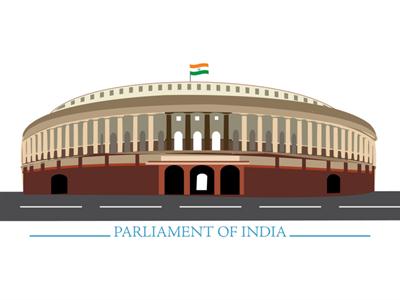
PUMPA - SMART LEARNING
எங்கள் ஆசிரியர்களுடன் 1-ஆன்-1 ஆலோசனை நேரத்தைப் பெறுங்கள். டாப்பர் ஆவதற்கு நாங்கள் பயிற்சி அளிப்போம்
Book Free DemoDemocracy in India
India follows the parliamentary form of democracy. The Indian Parliament comprises the elected representatives of the people and makes the laws for the country. The participation of people in the decision-making process and the consent of citizens are the two essential elements of the parliamentary form of government in India.
India is the largest democratic country in the world. Democracy in India works on five basic principles. These are sovereign, socialist, secular, democratic and republic.
India follows universal adult suffrage i.e every person who is a citizen of India and is not less than 18 years of age can exercise their right to vote in India. There is no discrimination based on a person’s caste, creed, religion, region, gender and education when it comes to providing the right to vote.
Elections in India:
India has a quasi-federal government, with elected representatives at the federal, state and local levels. The elections are conducted by the Election Commission of India. At the national level, the President of India appoints the Prime Minister, who enjoys the majority in the Lok Sabha, lower house of the Parliament of India.
All members of the Lok Sabha are directly elected through general elections, which takes place once in every five years.
Members of the Rajya Sabha, the Upper House of the Indian Parliament, is elected by an electoral college consisting of elected members of the legislative assemblies of the states and the Union Territories of India. The President of India nominates 12\ members for their contributions to art, literature, science and social services.
Important!
Two Houses of Parliament
Lok Sabha / Lower House / House of People
Lok Sabha / Lower House / House of People
Rajya Sabha / Upper House / Council of States
The Parliament House in India was designed by the British architects Edwin Lutyens and Herbert Baker in 1912-13. The construction of Parliament house began in 1921\ and ended in 1927.

The First Elections in Democratic India:
General elections to the first Lok Sabha since independence were held in India between 25th\ October 1951\ and 21st\ February 1952. The Indian National Congress emerged victorious by winning 364 of the 489 seats. Jawaharlal Nehru became the first democratically elected Prime Minister of the country.
British India –General elections, 1920
General elections were held in British India from 1920\ to elect members to the Imperial Legislative Council and the Provincial Councils.
General elections were held in British India from 1920\ to elect members to the Imperial Legislative Council and the Provincial Councils.